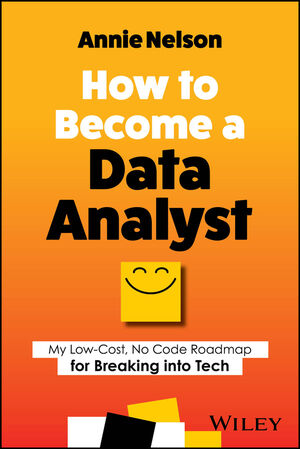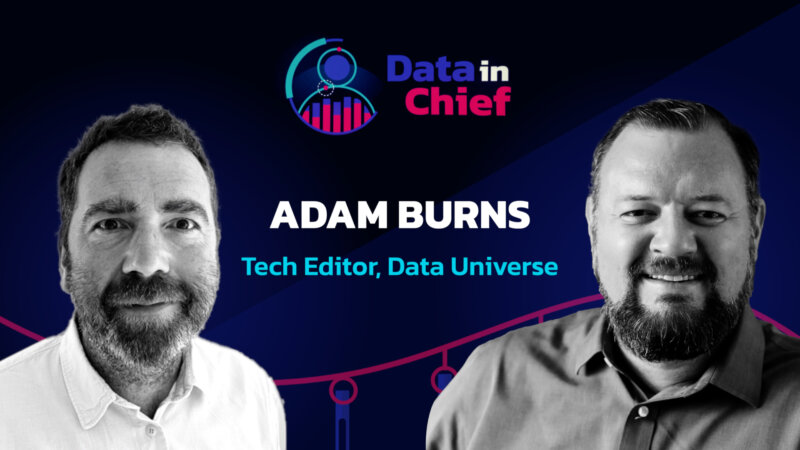
Reviews
Book Review: “How to Become A Data Analyst” by Annie Nelson
Annie Nelson’s How to Become A Data Analyst is an insightful and practical guide for anyone looking to break into the field of data analytics. Nelson landed her first data job after just six months of self-study, spending less than $100 — a testament to the accessibility of this career path. She highlights the unique aspects of the data analytics profession, stressing its low barrier to entry and its important role across various industries. I’ve found that this book serves as a do-it-yourself guide for those with strong critical thinking skills, covering everything from building a portfolio, networking, and leveraging AI for success to navigating the interview process, and more.

Is Data Analytics Right for Me?
“As a data analyst, your job is to have a clear understanding of what the business problem is that you are trying to solve.”
In the first chapter, Nelson begins by explaining what data analytics entails and its widespread applicability across industries. She distinguishes between two primary aspects of the field: “heads-down work” focused on analysis and project building, and the “business” side, involving presentations and interactions with executives. One key attraction for Nelson was the ability to work remotely, offering flexibility of her schedule. She emphasizes that critical thinking is the most crucial skill for a data analyst, supported by other non-technical skills like planning, organization, strategy, and communication.
Nelson identifies these essential tools for aspiring data analysts:
Excel: Provides a foundational understanding of data structures and basic calculations.
SQL: Deemed the core language for interacting with databases.
Tableau/Power BI: Combines design, psychology, basic statistics, business, and analytics to create dashboards.
Python: Not essential, but beneficial.
R: Commonly used in research-related positions.
Understanding the Paths of Data
“It took me six months of hard work and less than $100 to become a data analyst.”
On the journey to becoming a data analyst, you will most likely begin through one of the four main paths Nelson outlines: transitioning from an analyst-adjacent role, obtaining a degree, attending a boot camp, or taking the DIY route. She chose the DIY approach, which is suitable for those who prefer to learn at their own pace. This method involves extensive research in selecting the right courses, finding free data, and navigating the job search. Nelson shares her learning process and offers guidance on creating a personalized DIY plan for breaking into analytics.
Designing Your Data Analyst Roadmap
“A data analytics portfolio is not unlike an art portfolio – it is a collection of your work that you can show employers to demonstrate your data skills.”
Burnout is a major obstacle to becoming a data analyst. Nelson stresses the importance of planning before diving into analytics courses to avoid stress and burnout. Her recommended steps include:Skills Development: Start with foundational skills in Excel, SQL, and Tableau/Power BI, alongside soft skills like communication and problem-solving. Nelson suggests the “Thinking Like an Analyst” course by Maven Analytics.
Building a Portfolio: Create projects to showcase your skills and reflect on your learning. Nelson emphasizes the value of a blog or public sharing for organizing thoughts.
Preparing for the Job Search: Integrate job search activities throughout your process rather than treating them as a final step.
My Experience with Data Analytics Courses
“The real skills that make a valuable data analyst can only be truly learned by going out and doing the hard work of researching to find data, figuring out how you are going to analyze it, and debugging your errors.”
To begin developing analytical skills, Nelson started with the Google Certificates course in Data Analytics, covering Excel, SQL, Tableau, and R, along with soft skills and portfolio projects. She describes her experiences and challenges with each tool, emphasizing the importance of applying learned skills through projects, rather than continuously taking new courses.
Introduction to Portfolios
“If you don’t have any data analytics experience, creating a portfolio is the best thing you can do as a job seeker.”
Building a portfolio involves finding data, analyzing it using tools like SQL, Excel, Tableau, or Power BI, and showcasing the work. Nelson highlights the benefits of portfolios for hands-on practice and job readiness, stressing that they provide practical experience and demonstrate your skills to potential employers. She advises having at least two projects per listed skill on your resume.
Portfolio Project FAQ
“The whole point of data analytics is not to use the tools, but to use the tools to answer business questions. However, in your first projects, throw that out the window.”
In this chapter, Nelson addresses common questions about portfolio projects, including where to find free data (Maven Analytics, Real World Fake Data, etc.), how many projects to include, and where to publish and store your work. She suggests focusing on practical application and creativity in early projects, rather than strictly answering business questions.
Portfolio Project Handbook
“Just because you have a few good projects in each skill and you start job searching does not mean you should stop doing projects. It is important to stay fresh with your job skills while you are applying.”
Nelson details different types of projects for varying skill levels and tools, emphasizing that real projects often require a combination of tools and analytical work. She provides many examples of guided projects differentiated by experience level and recommends choosing SQL projects with multiple tables to practice using joins. Some examples she suggests include:
Tableau projects: New Year’s Eve Resolutions Project in Maven Analytics, Help Desk Project in Real World Fake Data, Pizza Sales Project in Maven Analytics.
SQL projects: Recommendations from “Alex The Analyst” on YouTube.
Starting Your Job Search
“The thing you need to know about job searching in tech is that if it is your first tech job search, it is probably going to take longer than you’d expect.”
Exploring various job titles and learning about future career paths is important when you first begin applying for jobs. In this chapter, Nelson describes numerous job titles and details the importance of asking good questions during interviews to demonstrate knowledge and seriousness about the role. She also provides a checklist for job search preparation, including resume tips and leveraging LinkedIn.
Resume Building and Setting Your Public Image
“…your resume needs to be written for the job you want, not the job you had.”
A resume should be a “highlight reel” of relevant experiences, fitting on one page. Nelson suggests listing technical skills at the top and using metrics to demonstrate accomplishments. She also touches on the importance of a strong LinkedIn profile and shares tips for crafting impactful LinkedIn posts.
Stages of Data Interviews
“…somebody told me that asking good questions is important and is likely one of the metrics by which the interviewer will be evaluating you.”
Tech interviews typically involve multiple stages: phone screens, meetings with hiring managers, behavioral interviews, technical interviews, panel interviews, culture-fit assessments, and follow-ups. Nelson stresses the importance of showcasing interpersonal skills alongside technical capabilities and preparing thoroughly for each stage.
How to Use ChatGPT to Aid Your Job Search
“If you copy and paste straight from your AI tool of choice, it may be obvious that it was not written by you.”
Nelson highlights the usefulness of ChatGPT for writing cover letters, practicing interviews, preparing follow-up emails, and receiving resume feedback. She advises providing detailed prompts and tailoring responses when using ChatGPT for personalization and effectiveness.
My Job Search
“As a word of warning, you should never, ever pay a recruiter to do anything related to recruiting you.”
Speaking about job search, Nelson discusses the emotional challenges that future data analysts face and how to deal with them. These challenges are very prevalent when you’re trying to get a job. To help with this, she expresses the importance of networking and content creation. She advises against paying recruiters and stresses the value of practice and preparation for interviews.
After the Job Offer
“Once I realized that I can learn, and I can do it for free, I felt unstoppable.”
Once you receive the job offer, it’s a good idea to take a moment to relax and feel proud of your accomplishment. When starting the job, Nelson advises addressing imposter syndrome by discussing feelings of anxiety and creating a development plan. She also highlights the importance of understanding how your work contributes to larger business goals and utilizing referrals to advance the interview process.
Preparing for/Recovering from a Layoff
“A company that is not interested in the professional development of their employees is not a good fit for me.”
Layoffs in the tech industry are common. Nelson advises to plan for the possibility of this happening by keeping your portfolio updated. She suggests taking time for oneself after a layoff, if financially feasible, and focusing on the importance of professional development and staying adaptable in your career.
The End of the Beginning
Annie Nelson’s How to Become a Data Analyst is a comprehensive and inspiring resource for anyone looking to enter the data analytics field. Her personal journey, along with practical advice, a detailed roadmap, Tableau tips, and more provide a clear and achievable path for aspiring data analysts. Nelson emphasizes that interpersonal skills such as critical thinking, continuous learning, and being well-rounded in soft skills are just as important when interviewing for jobs.
I highly recommend this book, whether you’re considering a career change or wanting to enhance your current skill set. How to Become a Data Analyst offers a wealth of knowledge and actionable steps to help you succeed in the world of data analytics.





